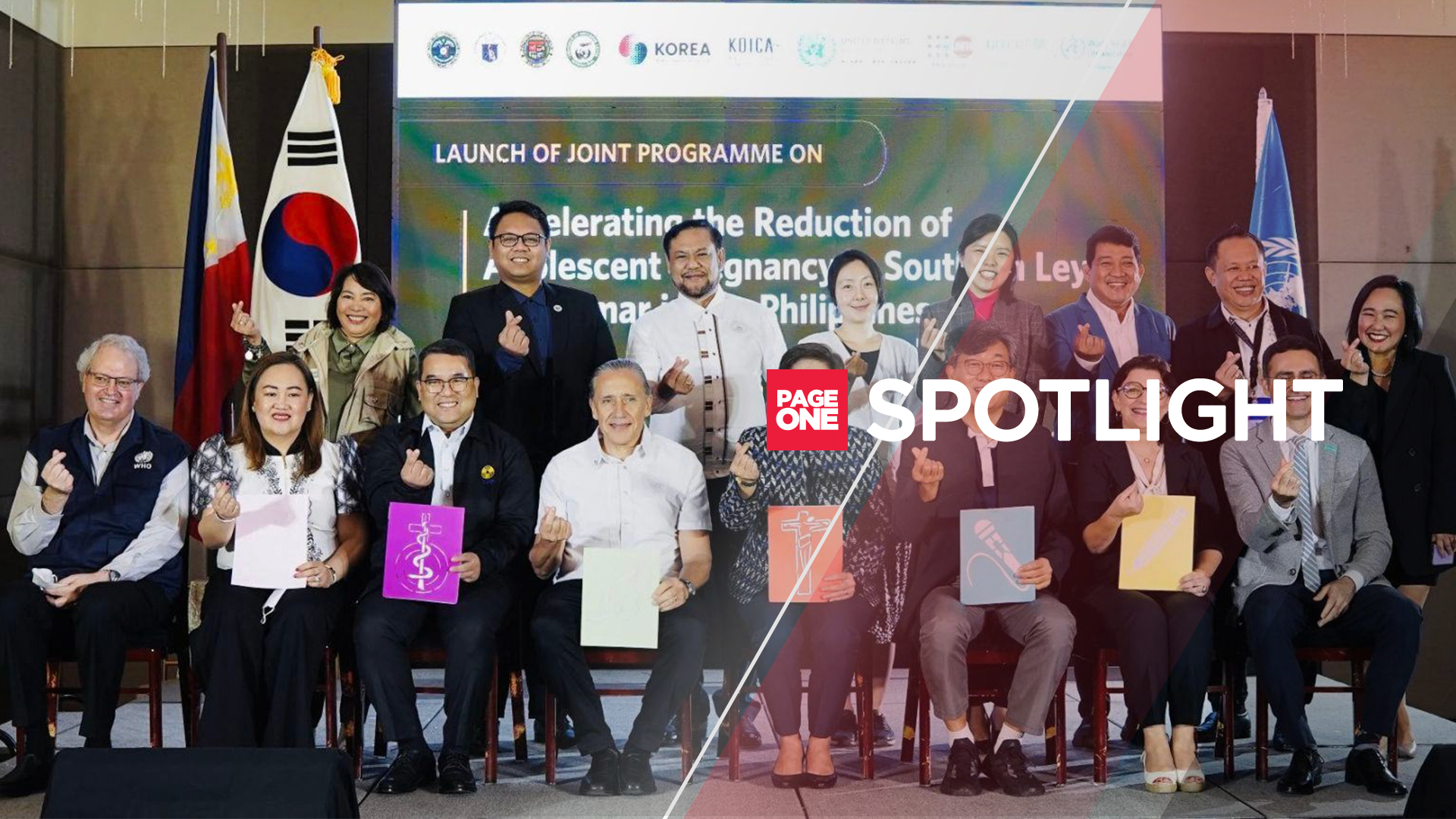Officials from the Philippine government, Korea International Cooperation Agency (KOICA), and the United Nations (UN) jointly launched on February 20, 2023 a programme that aims to address the high rates of adolescent pregnancies in the country.
Funded by the Republic of Korea, through the Korea International Cooperation Agency (KOICA), the joint programme “Accelerating the Reduction of Adolescent Pregnancy in Southern Leyte and Samar in the Philippines” aims to improve access of the adolescent population to sexual and reproductive health (SRH) services and information, to raise their self-awareness on sexual and reproductive health and rights, as well as to enhance leadership and governance on ASRH.
According to the World Bank, the Philippines has one of the highest adolescent birth rates among the major economies in the ASEAN region.
In November 2022, KOICA, the United Nations Population Fund (UNFPA), United Nations Children’s Funds (UNICEF), and the World Health Organization (WHO) inked the agreement on the joint programme, which is slated to last until 2026. Leading the Joint Programme steering committee is the Department of Health (DOH) with the UN Resident Coordinator, Gustavo Gonzalez, as its co-chair. Joining as members are the said UN agencies, KOICA, the Department of Education (DepEd), and the governors of Samar and Southern Leyte.
“Korea is committed to support the Philippines in its goals to achieve universal health for all. This is the first time that KOICA is working on a joint project on adolescent health in partnership with the three UN agencies in the Philippines. Hence, we look forward to working towards improving the comprehensive sexual and reproductive health and rights of Filipino adolescents in the Philippines,” said KOICA Country Director Kim Eunsub.
DOH Officer-In-Charge Dr. Maria Rosario Singh-Vergeire said that teenage pregnancy, which has been declared by the government as a national social emergency, deprives many young Filipinos of their future, she then highlights of addressing these concerns through solidarity in partnership
“Together, we, along with our partner agencies and stakeholders — must work in weaving our strategies to contribute to positive and long-lasting impacts for adolescents. As a key objective of the Universal Health Care Act, equitable access to health services for the youth, especially those in the vulnerable and marginalized sector, is central to the DOH’s priorities. To address these gaps, we will continue to seek the support of our partners, as we can only truly achieve the universality of health through a whole-of-government and whole-of-society approach,” said DOH OIC Singh-Vergeire.
“Adolescent pregnancy is not only a health and education problem but also an economic development issue,” said Gustavo Gonzalez, United Nations (UN) Philippines Resident Coordinator. “We are hoping that with this program with KOICA, we will be able to reduce adolescent pregnancy and support the Philippines in maximizing the ‘demographic dividend.’”
With the Philippines having one (1) out of three (3) people under the age of 18, it is expected to benefit from the change of its population structure towards a younger demographic structure. However, the window opportunity that the demographic dividend brings may be lost if Filipinos are not able to care for their sexual and reproductive health and their families.
Gonzalez said the group is eager to build on previous partnerships with the local governments of Samar and Southern Leyte and to accelerate the progress that they have reached in terms of development and humanitarian programs.
Besides being one of the Philippines’ poorest and most typhoon-battered regions, the 2021 Young Adult Fertility and Sexuality (YAFS5) Study also showed that Eastern Visayas has the highest rates of 15 to 19-year-old female youths that had begun childbearing.
The programme’s efforts are expected to provide additional training for health workers and non-health service providers such as social workers, teachers and peer educators; work on the expansion of the PhilHealth package for adolescent pregnancy; provide mobile medical facilities to benefit adolescents; and support the implementation of a Performance Accountability System for the local health and government units, as well as a Youth Leadership and Governance initiative.
The steering committee of this Joint Programme will be collaborating with other strategic government partners that will serve as advisory members: the Department of the Interior and Local Government (DILG), the Department of Social Welfare and Development (DSWD), and the National Youth Commission (NYC). Other government units will also be part of the regional and provincial committees of the program.
Coinciding with the joint programme launch is the ongoing congressional discussions on the proposed measures to address adolescent pregnancy.








